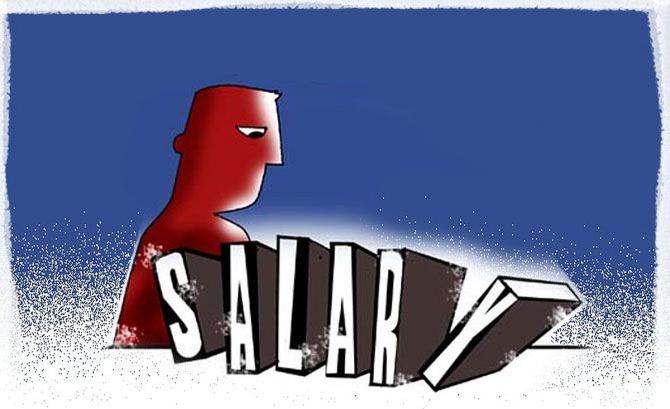Investors pushing back more on top executive pay hikes

Investors are pushing back more often against companies’ resolutions on what is paid out to top executives.
In the first four months of financial year 2022-23 (FY23), there have already been five such rejections, according to shareholder voting data from tracker Adrian, a platform maintained by the proxy advisory firm Institutional Investor Advisory Services India (IiAS).
Two of these have been at multiplex chain PVR and direct-to-home company Dish TV India.
The Chennai-based Equitas Small Finance Bank also saw a rejected resolution which the company later clarified was on account of an error during the voting process.
One in the case of Future Consumer was withdrawn.
“The company has followed the highest standards of corporate governance and reporting and the fact that the proposal to give incentive was transparently put forward to shareholders after the due recommendation of the NRC (nomination and remuneration committee) and the board.
“The company received 64% votes in favour of the resolution but could not cross the required threshold of 75%,” said a PVR spokesperson in an emailed statement.
Records show that 51.51 per cent of the institutional votes were against the resolution as were 25.29 per cent of other non-promoter votes.
“It may be noted that the…committee and the board of the Company had proposed the special incentives for the CMD (chairperson and managing director) and JMD (joint managing director) recognising their exemplary leadership in navigating the company out from the crippling pandemic induced crisis in the cinema exhibition business and keeping it afloat in spite of unprecedented challenging times,” added the PVR statement.
Emails sent to the other companies mentioned above did not elicit a response.
There were eight similar rejections in the whole of FY22, seven in FY21, and eight in FY20.
Though the rejection rate on the remuneration proposals of chief executive officers (CEOs) and other top executives so far is higher than in the past, some of this could even out during the rest of the year.
There has also been opposition that hasn’t resulted in rejection. Logistics start-up Delhivery saw 21.68 per cent votes against a move to ratify its employees’ stock option plan.
One reason for this is that investors are becoming more discerning and demanding greater accountability, according to IiAS founder and managing director Amit Tandon.
Rejection can also reflect the fact that investors are unhappy with the fact that salary levels are going up without a commensurate increase in transparency, according to Tandon.
Investors want more information on the criteria by which remuneration is decided.
This can cover targets on margins, geographical expansion or even softer issues like how diversity or environmental concerns are handled.
India’s current benchmarks lack the transparency seen elsewhere in the world, according to Tandon.
“The disclosures globally are significantly more than in India,” he said.
The analysis of Adrian database numbers also looked at the percentage of shareholders who typically overturned a resolution.
The median number for each year’s rejected remuneration resolutions was considered. It was 29.9 per cent in FY15, and 56.1 per cent in FY22. It stands at 36.1 per cent so far this year (see chart 2).
A special resolution would require around 25 per cent of shareholders to reject it to be overturned.
The threshold is 50 per cent for an ordinary resolution.
All the five resolutions rejected so far in FY23 have been special resolutions.
Promoters own more than 50 per cent of shares in Nifty 500 companies, an index of the 500 most valuable companies listed on the National Stock Exchange.
This means that most resolutions will be carried through even if all institutional shareholders are against it.
The nature of institutional ownership can have an impact on compensation too, according to a 2005 study titled ‘The Composition of Institutional Ownership and the Structure of CEO Compensation’ by author Jae Yong Shin of the Seoul National University.
There are differences if shares are held by investors with a shorter time horizon such as a hedge fund, versus those investing for longer time periods, such as pension funds.
“…the boards of firms with higher transient institutional ownership appear to be more concerned about a negative earnings surprise and punish their CEOs more severely in determining annual bonuses,” it said.
So far in FY23, 16 resolutions have been rejected.
Remuneration and compensation resolutions accounted for 31.25 per cent of the total rejected resolutions.
The average during the previous five years was 16.6 per cent.
Source: Read Full Article

